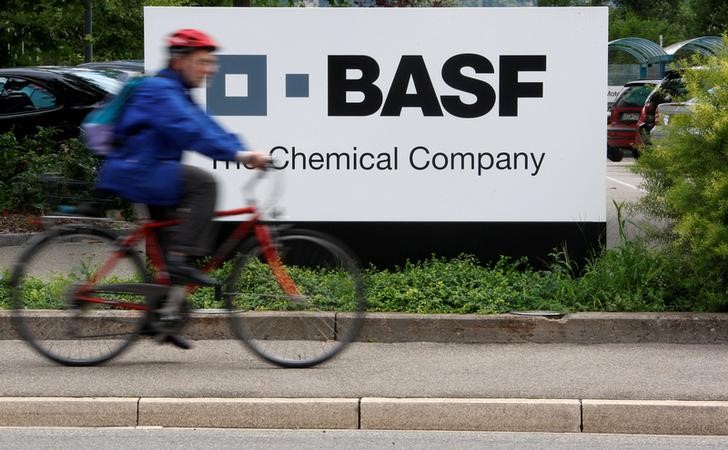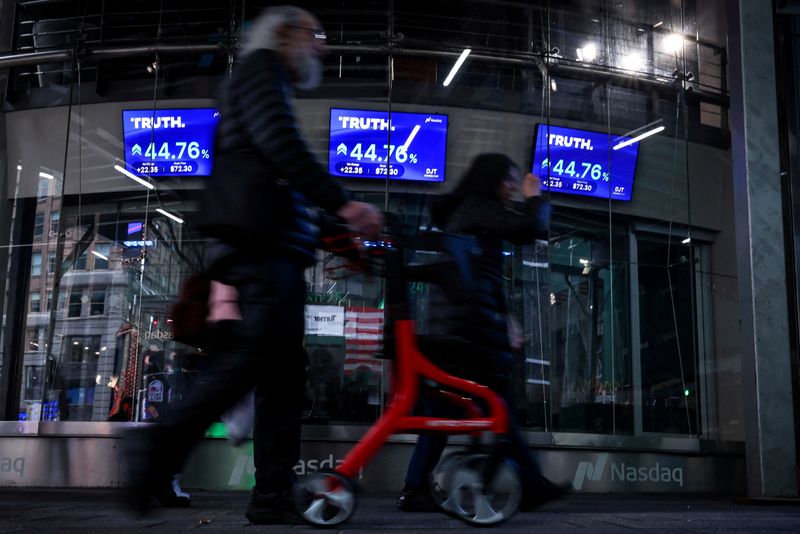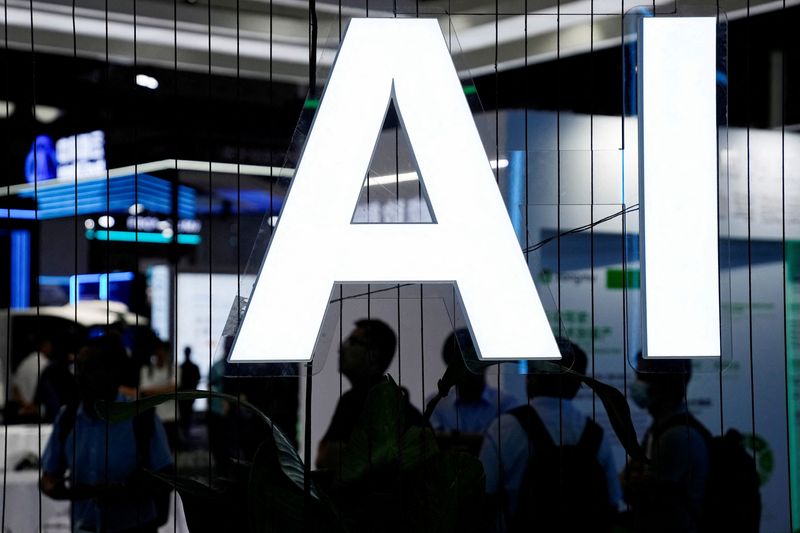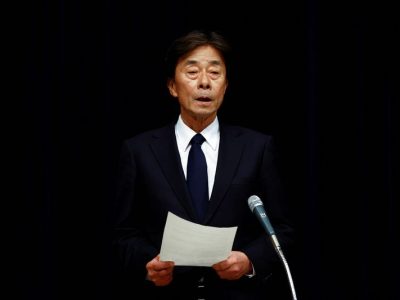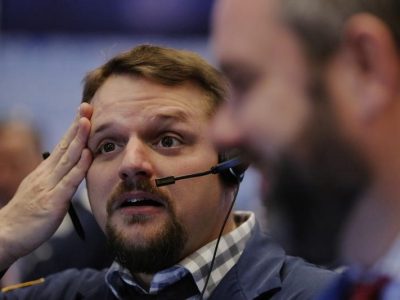
(Reuters) -The dollar surged and U.S. stock futures hit record highs as investors bet on lower taxes and higher interest rates as Republican Donald Trump was elected U.S. president four years after he was voted out of the White House.
MARKET REACTION AT 1143 GMT
* S&P 500 e-mini futures rose 2.3%, small cap Russell 2000 futures soared nearly 6%
* The yield on the 10-year U.S. Treasury note hit a four-month high of 4.47%, and was last at 4.45%; 30-year yields rose as much as 22 basis points to 4.669%.
* The U.S. dollar index was up 1.6%
* Bitcoin hit a record high of $75,389
* Europe’s STOXX 600 up 1.1%
COMMENTS
HENDRIK DU TOIT, CEO, NINETY ONE:
“It’s a completely new world, and we need to understand that.”
“He (Trump) has a massive endorsement and will move much faster than before. The market will price that in very quickly. What’s really important here is the markets like clarity, and they have that.”
ANDREA SCAURI, SENIOR PORTFOLIO MANAGER, LEMANIK, LUGANO:
“With Trump’s victory, you’ll get much stronger fiscal policies compared to what might have been under a Democratic administration. This will have repercussions for inflation, and you can see that already with this morning’s rise in Treasury yields.”
“So, who benefits from all of this? I think old-economy sectors, like oil, drilling, mechanical, and heavy industry, will benefit. And probably also tech, as the American consumers will have more money in their pockets, they might spend it on new phones, TVs, or invest in the stock market.”
EMMANUEL CAU, HEAD OF EUROPEAN EQUITY STRATEGY, BARCLAYS, LONDON:
“You have renewables, auto sector, some of the tariff stocks and China-exposed names which are lagging, so even though the market is going up, you are seeing some discrimination based on some of the Trump policies.”
“Roughly speaking, you have renewable and tariff trade names underperforming, then you have your U.S. consumer and dollar plays doing better. That seems to be the story now.”
EMMANOUIL KARIMALIS, MACRO RATES STRATEGIST, UBS, LONDON:
“We think that given Trump’s key elements of his agenda – tariffs on China and the rest of the world – the market is just thinking this would obviously have an impact on China, and Europe is a bit more sensitive to China. That would probably have an impact on growth, so European rates (bonds) are rallying.”
“U.S. rates have obviously sold off given expectations of more fiscal loosening in the U.S., and probably slightly higher inflation due to tariffs.”
“The fact that European rates have reacted sharply might be a little bit overdone in my view, because we don’t expect the ECB to shift their expectations quickly.”
DAVID ALLEN, PORTFOLIO MANAGER, PLATO GLOBAL ALPHA FUND, SYDNEY:
“Markets absolutely crave certainty, if we’d had a long contested result you would have seen price swings to the downside in major markets…Trump’s victory was also somewhat priced in at the margins”
“I do think Trump 2.0 will be different from Trump 1.0… I don’t think Trump was even expecting to win the first time and was less prepared. This time is different, I expect him to push through a lot of fast major legislation within the first 100 days, so hold onto your hats.”
ROGIER QUAEDVLIEG, SENIOR U.S. ECONOMIST, ABN AMRO (AS:ABNd) RESEARCH, AMSTERDAM
“Given the inflationary expectations associated with Trump’s economic and fiscal policies, we expect U.S. rates to continue rise across the yield curve. We anticipate that the market will further retrace expectations for Fed rate cuts next year due to increased inflation projections, while also pricing in higher term premiums.
“However, our economic analysis suggests that the full implementation of Trump’s policies – especially the tariffs – will eventually weigh heavily on the US economy.”
“Trump’s universal tariffs plan is also expected to have a substantial impact on the already fragile euro zone economy, while the inflationary effects for Europe will be more limited. This could trigger an even more accelerated rate cutting cycle path from the ECB and will likely lead to a greater divergence between the US and European policy rates.”
ANDRZEJ SZCZEPANIAK, EUROPEAN ECONOMIST, NOMURA, LONDON:
“In summary: It’s bad news for Europe.”
“Trump winning means tariffs which will adversely affect growth in Europe. The European Commission is expected to retaliate like-for-like, which could mean higher inflation in the euro area – or, as manufacturing firms’ pricing power is so diminished, as we have been flagging for some time, firms could be forced to absorb these higher costs, which in turn may result in some firms shuttering and unemployment rising, thus weighing more heavily on growth.”
KEN PENG, HEAD OF ASIA INVESTMENT STRATEGY, CITI WEALTH, HONG KONG
“A lot of this is based on investors’ view that Trump would cut taxes or at least keep tax rates low. Now that it’s likely to be looking like a red sweep – additional cuts are possible.
“Deregulation is another major positive for the economy and markets, particularly for the financial, energy and tech sectors. The negatives are tariffs. That’s going to be negative for global growth, you know, particularly in China, Asia (and)Europe… you see inflation expectations rise.
“I think the market is currently still just enjoying the positive aspects of a red sweep, but I think as time passes, you are likely to see the risks … get priced in.”
NAKA MATSUZAWA, CHIEF MACRO STRATEGIST, NOMURA, TOKYO:
“I think the market was not yet ready for a ‘red sweep’… if the ‘red sweep’ materialises, 10-year yields for U.S. Treasuries could go up to as high as 4.50% and above. Dollar/yen could go over 155. They’re kind of half pricing in that level right now.
“If Trump can pass tax and spending bills first, then he doesn’t have to rush for the hardline policies against China, which come rather later. If Congress is controlled by Republicans Trump can prioritise economic stimulus measures.”
RONG REN GOH, PORTFOLIO MANAGER, EASTSPRING INVESTMENTS, SINGAPORE:
“With Trump, market volatility is likely to pick up, so trading-wise, it does open up opportunities. The volatility comes from uncertainty surrounding how he intends to follow through on some of his campaign promises.
“Right now the markets are focusing narrowly on the prospect of tariffs, because it is the easiest lever to pull directly under a presidential executive order, but we’ve seen between 2016 and 2020 other levers that can be pulled to contain China.
“From this perspective, I think a foreign investor is likely to position more defensively towards China-focused risk.”
WONG KOK HOONG, HEAD OF EQUITY SALES TRADING, MAYBANK, SINGAPORE:
“Carnage in HK/China hasn’t really materialised because traders and investors are still awaiting any possible (stimulus) announcements.
“As for the next four years in general, for a start we may need to download Truth Social app.”
GARY NG, SENIOR ECONOMIST, NATIXIS, HONG KONG:
“As Trump’s policies in trade tariffs and tax cuts may lead to higher inflationary pressure and a wider fiscal deficit, the Fed may be less dovish than before.
“Therefore, the yuan can face higher pressure.”


